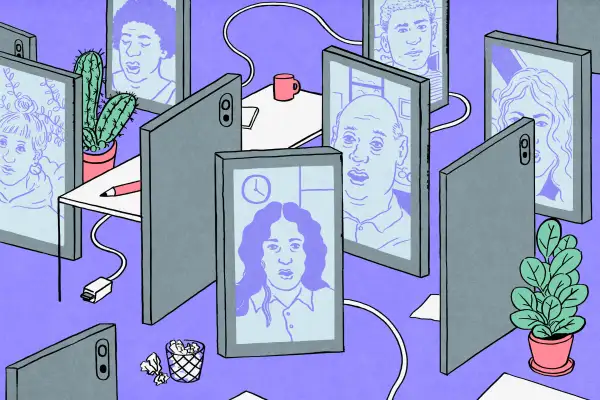What if the Coronavirus Makes Us Work From Home Forever?

People have debated the merits of working remotely for years. Now it’s a necessity to help stop the spread of Coronavirus, and experts predict it could be the new normal long after the virus passes.
Over the past 10 years, 83% of U.S. companies have added flexible workplace policies, or are planning to adopt them, according to new research by the International Workplace Group. And while less than a quarter of full-time employees regularly work from home, data from the Bureau of Labor Statistics shows, experts say COVID-19 could change that.
This is, "essentially, the largest social experiment ever," says Aaron Holt, a Houston-based labor and employment attorney. “An entire country and culture has required its workforce to go online. Now we’re seeing a whole lot of employers figuring out ways to make this work."
People are acclimating quickly to a remote work environment, and they’re unlikely to snap back to their normal routines once social distancing is over, Holt says. Here's what that means for the future of work.
Adaptable companies will thrive
The businesses most likely to survive the Coronavirus crisis are those that welcomed remote work with open arms.
Luckily, most companies can implement a work from home model without much infrastructure, and with little overhead, says Brie Weiler Reynolds, career development manager and coach at FlexJobs.
In many cases, moving to a remote workforce can actually reduce business expenses by minimizing a company's real estate footprint, and nixing the need for certain office supplies.
Remote work can bring also complications — like maintaining employee responsiveness and data security.
“The upsides, however, are readily apparent in limiting fixed costs," Holt says.
Companies will reach a broader talent pool
As working from home expands, it will create a more diverse, inclusive workplace, Reynolds says.
Prioritizing skills over geographical location helps eliminate hiring bias and levels the playing field for women, people of color and other minorities.
It also means new opportunities for people with disabilities, or those caring for elderly family members.
Oftentimes, Reynolds says, these applicants have all the experience and qualifications required, "but simply are not able to work in an office."
"Remote work helps employers reach them and offer meaningful employment," she says.
Workers will prove just how productive they can be
Holt says some companies have struggled to get on board with work from home policies, fearing productivity will decline once they do.
Research suggests the opposite is true. A two-year study from the Stanford Graduate School of Business, which followed office workers at China’s largest travel agency, found that people who worked from home showed a 13% improvement in performance compared to those who worked in an office.
Remote employees also work 1.4 more days each month than in-office workers, a 2019 survey by gig work platform Airtasker found. Remote workers took more breaks throughout the day, which has been shown to boost productivity. And when employees’ screen or mouse time was tracked, 56% of office workers found ways to avoid working, compared to 39% of remote workers.
“It’s important for workers who’ve long championed remote work to show just how effective an option it can be, so that businesses continue to see it as a strong option in the future,” Reynolds says.
New tools will make the workday easier
Many companies already use some remote-work resources, like document sharing and online collaboration tools. As demand for virtual meetings has increased over the past month, companies like Zoom have seen their stock soar.
Holt expects new ideas and inventions to emerge, and to further enhance remote work. In the legal industry, for instance, new virtual deposition platforms allow legal teams and witnesses to participate in sworn testimonies remotely.
"Competition is going to increase the efficiency and functionality of those services ... [making] it more likely that those things are here to stay,” he says.
Even if companies don’t go fully remote, Reynolds predicts that most will use the next several months as an opportunity to test new processes, and to figure out ways to make remote work as effective as possible.
"They're seeing how, even in extraordinary circumstances, it provides a productive, efficient alternative for being in the office,” she says.